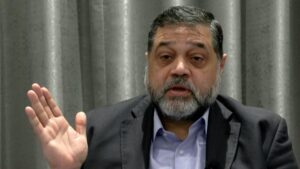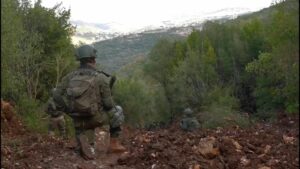Tunisia opposition calls for unity after tepid election turnout
Tunis, Tunisia (AFP):
Tunisia’s main opposition coalition urged a united front against President Kais Saied after just 11.3 percent of Tunisians voted Sunday in a second-round poll for a toothless parliament in the politically divided nation.
“Almost 90 percent of Tunisian voters ignored this piece of theatre and refused to be involved in the process,” Ahmed Nejib Chebbi, head of the National Salvation Front, told journalists.
“I call on political groups and civil society to join hands to work for change, in the form of Kais Saied’s departure and early presidential elections.”
Following a similar turnout in December’s first-round vote, Sunday’s poor participation was another blow to Saied, who has stripped the legislature of its powers and granted himself far-reaching authority since his 2021 power grab in the birthplace of the Arab Spring uprisings.
On July 25, 2021, Saied sacked the government and froze parliament before dissolving it and pushing through a new constitution — granting him almost unlimited powers and sweeping away the system that had emerged from the 2011 revolt.
The latest poll was seen as the final pillar of Saied’s transformation of politics, ushering in a new legislature that will have almost no authority to hold the president or government to account.
The National Salvation Front, which includes the Islamist-inspired Ennahdha party, said the low turnout exposed “the total failure” of Saied’s project, and said it would not recognise the new parliament.
Chebbi urged key bodies including the powerful UGTT trade union federation, which has hesitated to openly oppose the president, to join forces.
‘Bland campaign’
Electoral board chief Farouk Bouasker said 887,638 out of more than 7.8 million registered voters had taken part in the poll, which followed December’s widely boycotted first round.
Tunisians were divided over the poll.
Mohamed Abidi, 51, a waiter in Tunis, said there was “no way” he would vote.
“Saied isn’t listening to anyone to find solutions for our situation. The whole economy is suffering but he’s not interested — he only wants to keep his place in the presidential palace,” he said.
But in the southwestern town of Kasserine, Mokhtar Hermasi said he was doing his “electoral duty” despite a “bland campaign”.
The head of the polling station where he voted said numbers picked up throughout the day, and many of those casting ballots were older.
According to the electoral board’s initial figures, just five percent of those who voted were aged under 26, and more than two-thirds were men.
Analysts had predicted a low second-round turnout, as major parties including Saied’s arch-rivals Ennahdha, urged another boycott.
With inflation above 10 percent and repeated shortages of household basics, the North African country’s 12 million people have been focused on more immediate issues.










